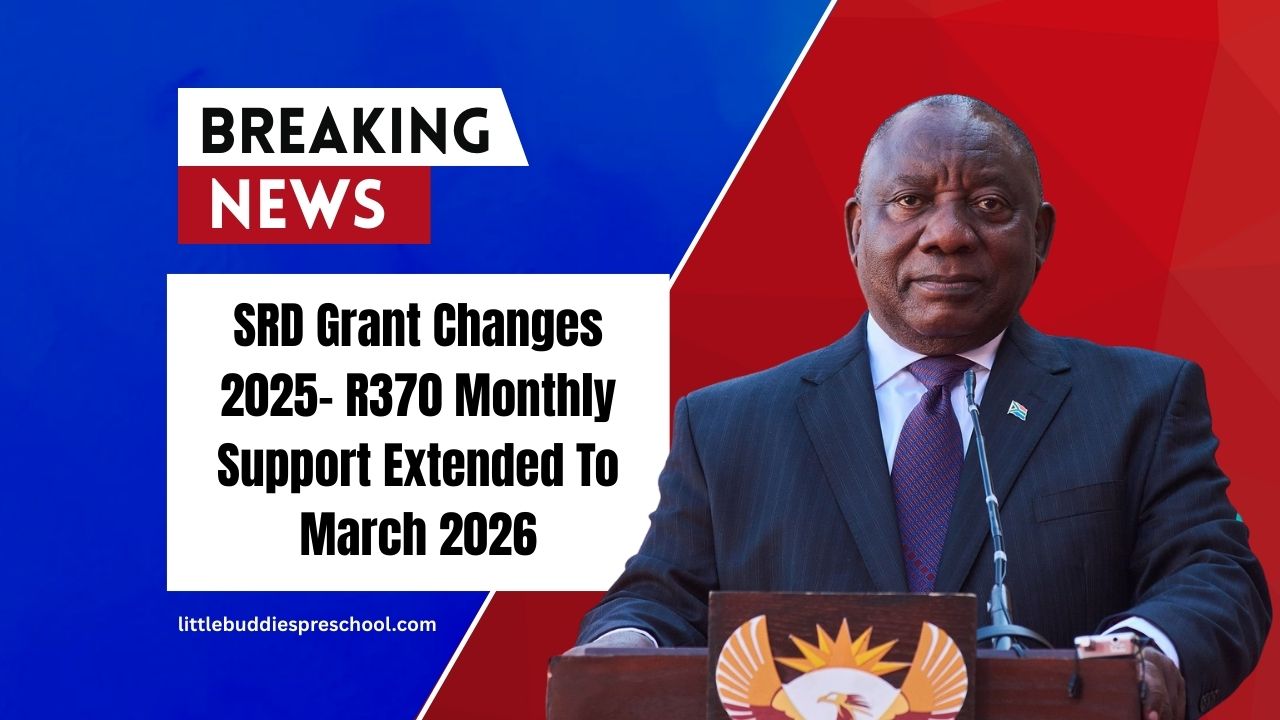The R370-a-month Social Relief of Distress (SRD) grant, a lifeline for millions of South Africans, is facing critical changes as announced in the 2025 Budget speech.
Finance Minister Enoch Godongwana confirmed the extension of the grant until March 2026, with no guarantee of its future beyond that date.
Let’s delve into the latest updates, proposed changes, and the implications for the recipients.
SRD Grant Extended – But For How Long?
In his recent budget speech, Minister Godongwana stated that the SRD grant will continue until the end of March 2026, offering temporary relief to over 8 million South Africans.
However, no funds have been allocated for the grant beyond the 2025/26 financial year, raising uncertainty about its permanence.
The government is actively exploring ways to integrate the SRD grant with employment initiatives, such as a potential job-seeker allowance.
This forms part of a broader strategy to link social support with Active Labour Market Programmes (ALMPs).
Key Budget Allocations for Social Grants
According to the budget documents, the Department of Social Development (DSD) has received the following allocations:
| Financial Year | Social Grants Budget | Notes |
|---|---|---|
| 2025/26 | R285 billion | Includes the SRD grant and annual increases |
| 2026/27 | R260 billion | Reflects end of SRD and reallocation of funds |
Approximately 45% of South Africa’s population depends on social grants or the SRD grant, including:
- 13.2 million child support grant recipients
- 4.3 million old age grant recipients
New Compliance and Verification Measures
To ensure sustainability, Treasury has imposed new conditions on SASSA’s operations, including:
- Monthly income checks for all major grants (SRD, child support, disability, old age, care dependency)
- Biometric verification using alternative forms of ID, initiated in early 2025
- Data-sharing with SARS and NSFAS to assess applicants’ financial status
- Quarterly reports on grant reviews, cancellations, and savings
These measures aim to tighten eligibility and reduce fraudulent claims, but they’ve also sparked concern.
Controversy Around Grant Conditions
Civil society organizations, including the Universal Basic Income Coalition (UBIC), argue that stricter conditions could lead to systemic exclusion of the most vulnerable.
They warn that Treasury’s increasing control over SASSA’s implementation policies is undemocratic and could hurt the very people the grants aim to support.
Researcher Siyanda Baduza highlighted that:
- The grant’s real value has decreased due to inflation. R370 today equals only R293 in 2020 terms.
- Conditional job-seeking requirements are problematic amid structural unemployment. Forcing people to search for non-existent jobs is inefficient and unfair.
SASSA’s Response and Implementation
SASSA spokesperson Paseka Letsatsi confirmed that the agency has started phasing in these Treasury conditions.
This includes additional monthly banking checks and increased biometric assessments, even amid legal challenges and a recent court ruling declaring some exclusions unconstitutional.
SASSA is expected to complete data-sharing agreements and provide quarterly updates to Treasury to prove compliance and track efficiency.
Implications for the Future
The government’s intention to link the SRD grant with employment raises questions about its long-term viability.
With no allocated budget beyond 2026, and mounting verification layers, millions of South Africans could be at risk of losing vital support unless a more stable and inclusive policy is introduced.
The R370 SRD grant remains a critical support tool for millions, but its future is uncertain. While the government explores employment-linked alternatives and implements stricter checks, the risk of exclusion rises.
As we approach 2026, clarity, fairness, and sustainability must guide South Africa’s social welfare policies.
FAQs
Will the R370 SRD grant continue after March 2026?
As of now, there is no confirmed funding beyond March 2026. The government is exploring alternatives like a job-seeker allowance.
How will income verification work for SRD and other grants?
SASSA will conduct monthly bank account checks and cross-reference income data with SARS and NSFAS to confirm eligibility.
Why are people concerned about new SASSA rules?
Civil groups argue the new checks may exclude millions and give Treasury too much influence over social development decisions.
